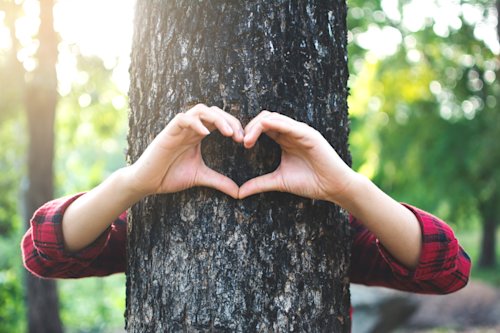As a society, we have never before been so aware of the need to protect our planet. The recent 2021 United Nations Climate Change Conference, better known as COP26, has brought environmental concerns to the very top of the news agenda.
Alongside calls for governments to initiate and enforce stronger environmental protection measures, people are asking what they can do to help tackle the climate crisis. From speaking out about their concerns, to eating less meat and dairy, there are a host of actions individuals can take to make a difference. One further step might be to consider having an environmentally friendly funeral.
Funerals and the environment
Julie Rugg of the University of York wrote recently that it has been estimated that there will be 80 million deaths worldwide a year by 2040, rising to 102 million by 2060. The vast majority of those deaths will result in a cremation or burial, using “energy, space, time and material”. She highlights the smoking funeral pyres we saw in many countries during the pandemic as a very real reminder of the impact funerals can have on the environment.
In her article, Rugg says every burial system should aim for minimal environmental impact. Poorly functioning cemeteries and crematoria should be upgraded; mature cemeteries and churchyards should be preserved. But she says any changes to funeral requirements must be affordable, so that every family, regardless of income, is able to show respect to their loved ones.
What is the most environmentally friendly funeral option?
Unfortunately, it isn’t always immediately clear what the environmental impact of a particular funeral choice is.
Burial vs cremation
Anyone considering an environmentally friendly funeral may wonder whether burial or cremation is best. Although this is typically a personal choice and the carbon footprint is generally not the be all and end all of the decision-making process, burial is often considered the most-green option.
A cremation is reportedly equivalent to a 500-mile car journey and has an immediate impact on the environment. Also, the various metals and elements found in bodies - mercury in tooth fillings or metal in joint replacements - can further increase the impact a cremation will have on the environment.
But burials are not without environmental impact if they are not planned in the greenest way possible. Certain coffin materials and toxins in embalming fluids can pose a serious risk to water supplies if the deceased is not buried in a suitable place.
Burial also has a big impact on land usage and, as society requires more land for general use, the amount of land that can be realistically spared for burials decreases. With this in mind, it is difficult to compare the long-term environmental impact of burial with cremation and personal choice is likely to remain the biggest factor.
Woodland burial
For people set on burial, but wishing to reduce the environmental impact as much as possible, a woodland burial may be a strong option.
Also known as green or natural burials, these are increasingly popular. Typically, they take place in designated woodland areas or natural burial grounds and will generally not involve embalming of the body.
Woodland burial plots are typically unmarked or marked with a natural alternative to a typical headstone, such as a tree or flowers that will, with time, blend in with the surrounding woodland. People planning a woodland burial should be aware that it may be difficult to find individual burial locations on woodland sites, however, many people come to see the entire wood as a memorial to their loved one.
Coffin options
When it comes to choosing a coffin, there are both environmentally friendly and unfriendly options. Environmentally friendly coffins are specially made from a biodegradable material such as recycled paper, willow or wicker. They will contain no fittings, screws or nails that are not natural and are often designed to look more natural, especially when made out of materials like bamboo or seagrass.
Environmental funeral technology
As with many areas of technology, environmental concerns are driving the development of future funeral technologies.
Water cremation
One of the newest environmentally friendly funeral options is water cremation, a trend which has really taken off in the USA and Canada. Also known as resomation, water cremation is where the remains are broken down using a liquid solution made from potassium hydroxide before the bones are pulverised.
Concerns that the liquid by-product could contaminate the country’s water system have hampered the introduction of water cremation in the UK. However, the UK’s first ‘wastewater consent to discharge’ was granted for the water cremation process by Yorkshire Water. Howard Pickard, MD of Leeds-based natural water cremation company Resomation, has called this a ‘major milestone for water cremation in the UK’.
He said, “Having demonstrated that the issuing of a water consent is a realistic possibility, Resomation will now work with those interested in providing water cremation and, together, engage with their respective water companies through the application process.”
Composting
Although it doesn’t sound like the most dignified process, human composting is a new option that has recently been introduced in the United States.
The principle is simple and revolves around an accelerated composting of human remains that will present loved ones with an urn of soil rather than an urn of ash once the process is complete. The thought behind this is that nature is the most effective method of human decomposition and one entirely natural that, in a matter of weeks, can turn a body into fertile and usable soil. More practically, the process is said to use an eighth of the energy of cremation.
To date, human composting has not been undertaken in the UK. But as public worries about the climate crisis dominate the news, it may only be a question of time before it joins the other eco options available to people concerned for the environment.







